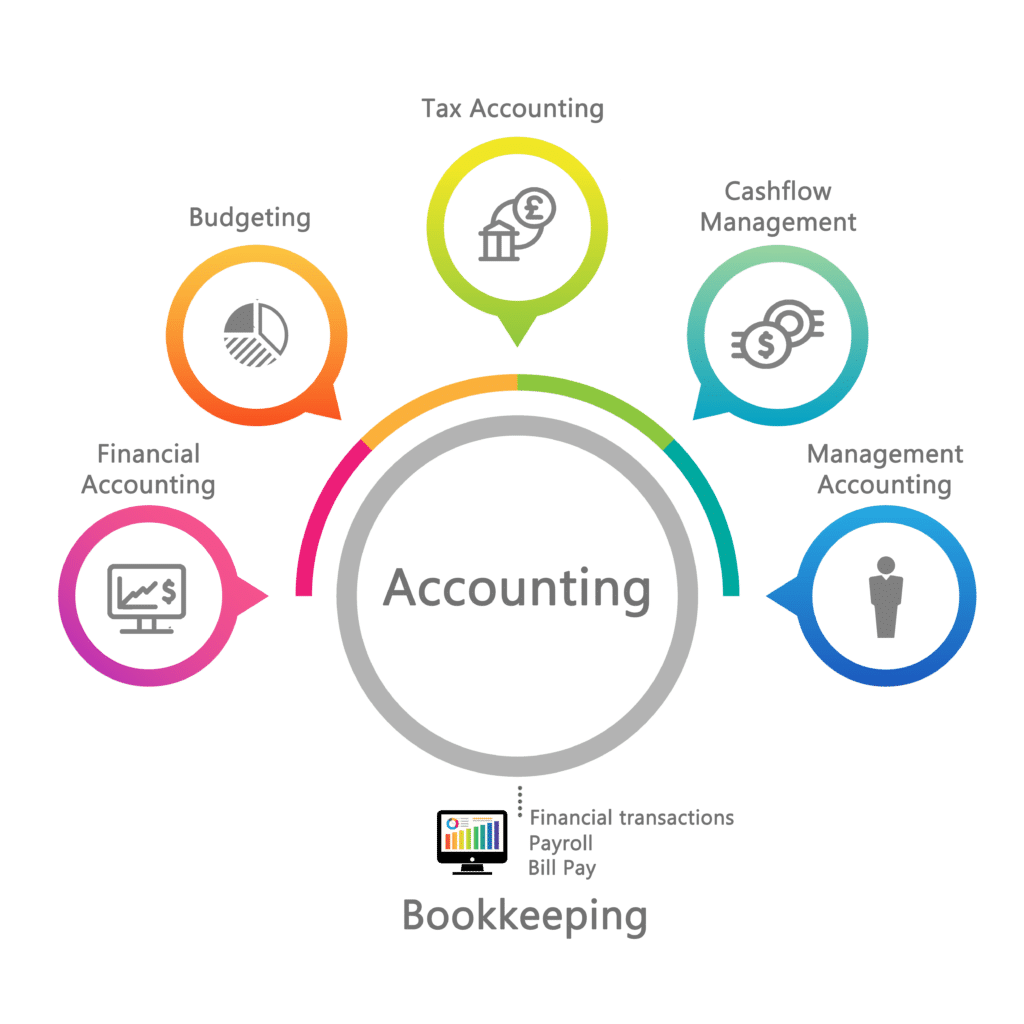EDUCATION
“Accounting is the language of business, and you have to be as comfortable with that as you are with your own native language…”
-Warren Buffett
Understanding Business Basics: Accounting A 5-Part Mini Series
Regular Bookkeeping
 The Foundation
The Foundation
Bookkeeping is the foundation of accounting. It involves recording and organizing day-to-day financial and bank transactions that occur in a business or individual.
This data input is crucial for fulfilling multiple activities in a business such as:
- Tax obligations
- Financial Accounting
- Management Accounting
- Managing cash flow
- Budgeting
- Financial modeling for growth & expansion
There are countless benefits that proper bookkeeping can offer to help a business run efficiently and effectively.
Methods of Bookkeeping
There are several different methods of bookkeeping that businesses can utilize. These methods can be done internally by the business or outsource the task to external professionals or bookkeeping services.
- Manual Bookkeeping – before the age of computers, this was the method used by businesses. It involves recording transactions by hand using paper-based ledgers,journals,and worksheets. It is the most time-consuming and highly prone to errors therefore it’s not suitable in the modern world.
- Spreadsheet-Based Bookkeeping – using spreadsheet software like Microsoft Excel or Google Sheets, businesses can create customized templates to record and organize financial transactions. This method allows for greater flexibility as you can customize the process specific to your business. Though the entire workflow process is still somewhat manual, it is suitable for businesses just starting out and requires a degree of proficiency with the software.
- Software-Based Bookkeeping – many businesses opt for dedicated accounting software such as Quickbooks, Xero, or Wave. These software applications provide comprehensive bookkeeping functionality and streamline the majority of the workflow. It makes the process more efficient, but necessary skills are required to properly categorize and reconcile transactions.
- Online Cloud-Based Bookkeeping – accounting software providers are increasingly incorporating the choice of cloud-based solutions, which offer greater flexibility in remotely accessing your data from any location without the need of software installation on computers. Additionally, it allows for real-time collaboration between the business owner and their accountant or bookkeeper.
Why it’s important
Bookkeeping is important for several reasons:
- Tax obligations: It ensures that businesses meet their tax obligations by keeping accurate records of income, expenses, and deductions. This information is used to prepare tax returns and to respond to any queries from tax authorities.
- Financial Accounting: It is necessary to be able to produce accurate financial reports (Income statement, balance sheet, statement of cash flow) to external users such as banks/creditors, regulators, investors and the general public. The purpose of financial accounting is to provide accurate, reliable, and timely financial information that is useful for making informed business decisions.
- Management Accounting: It can help management accountants track the costs associated with different products, services, or projects. This information is essential for making strategic decisions about pricing, product mix, and resource allocation.
- Managing cash flow: It helps management accountants monitor cash inflows and outflows, providing insights into the company’s liquidity position. This information is important for managing working capital and ensuring that the organization has sufficient cash to meet its obligations.
- Budgeting: It provides the data necessary for management accountants to prepare budgets and forecasts for the organization. These budgets and forecasts are critical for planning, decision-making, and measuring performance against expectations.
- Financial modeling for growth & expansion: The financial statements produced from bookkeeping can be used to analyze trends and identify areas for improvement in the company’s financial performance. This information can then be used to create financial models that project future growth and expansion.